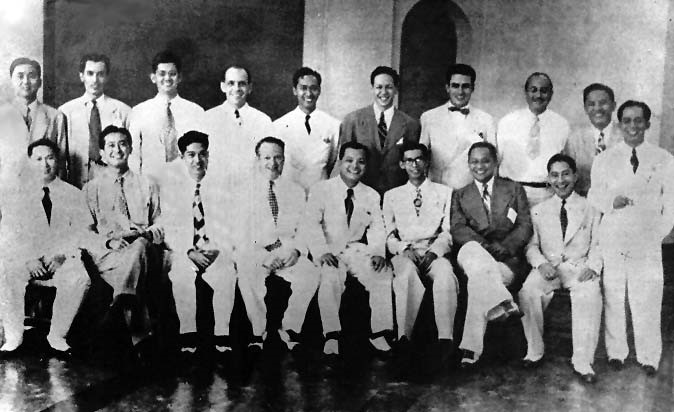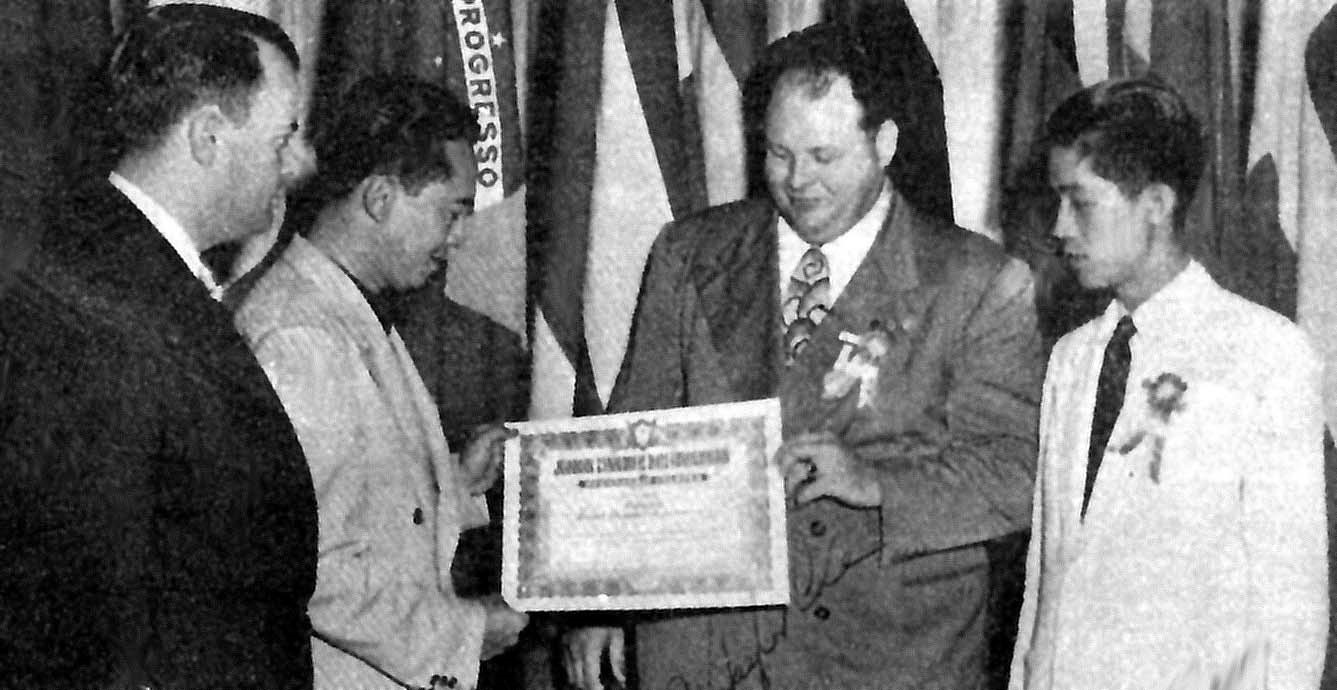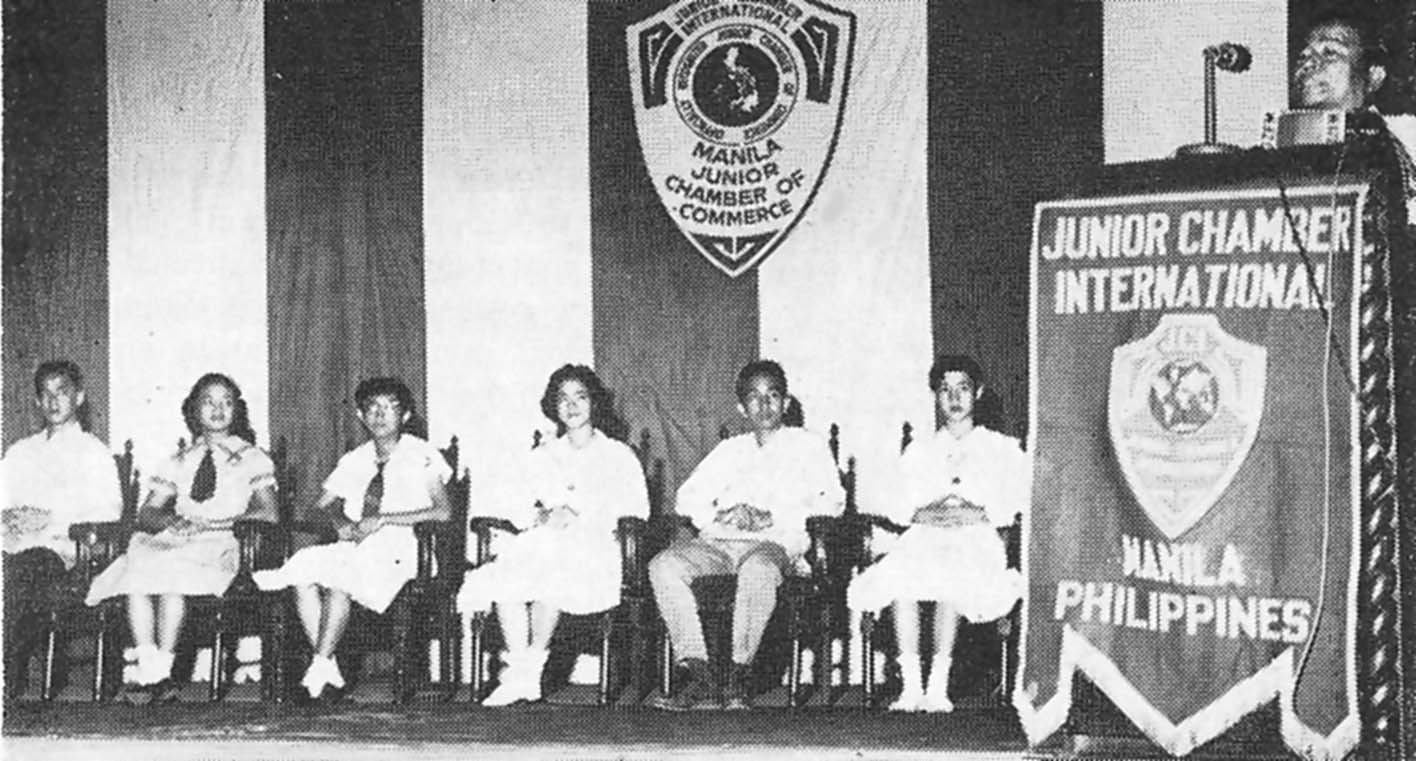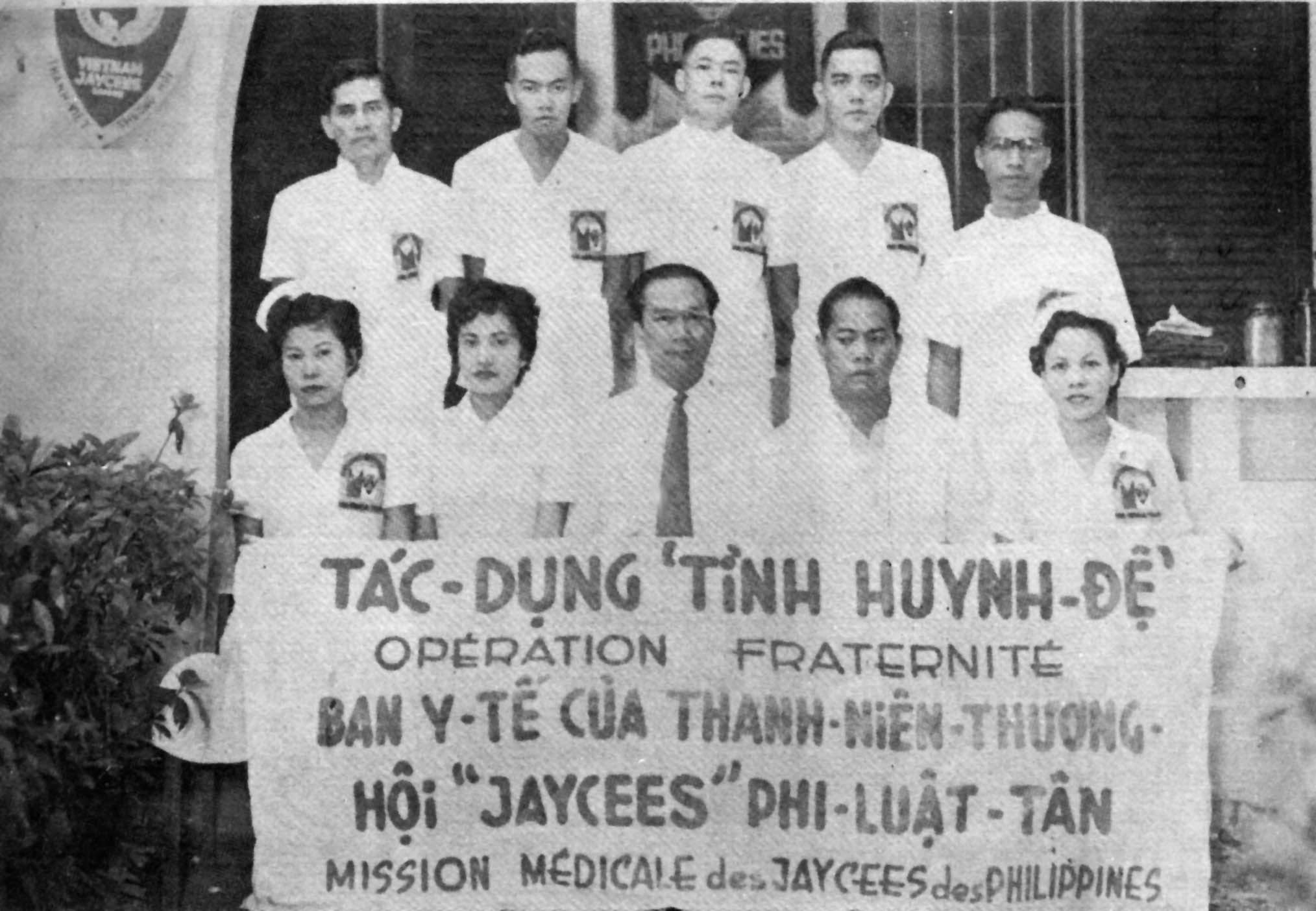By: JCI Sen. Reginald T. Yu
2002 National Secretary-General
JCI Manila
The Philippine Jaycees now JCI Philippines is the first nationally organized leadership development organization established in Asia. It began when two delegates from the Manila Jaycees, Gregorio M. Feliciano and Jose N. Mayuga, attended the 3rd World Congress of the Junior Chamber International held at Rio de Janeiro, Brazil to petition for the admission of the chapter to the world-wide organization. They came back to Manila on March 10, 1948 with the charter for the national chamber that was to be known as the Philippine Jaycees, and the distinction for Jaycee Gregorio M. Feliciano for being the first Filipino Vice-President for Asia of Junior Chamber International.
Two circumstances paved the way for the Jaycee’s transplantation in Asia through the Philippines. First, its historical ties with the United States, and Second, the restlessness of its young professionals to help the country recover from the ravages wrought by the Pacific War.
This involvement earnestly began with the curiosity of World War II veteran, the venerable Artemio L. Vergel de Dios, who read about the United States Junior Chamber of Commerce in the October 1946 issue of an American magazine, PIC and forthwith wrote the United States Jaycees to inquire how a similar organization could be established in the Philippines.
By September 12, 1947, Vergel de Dios got the cue from Robert H. Richards, Executive Secretary for External Affairs of the United States Jaycees, who referred him to Bertram J. Talbot, a former Jaycee from St. Paul, Minnesota, who was then the Traffic Manager of Northwestern Airlines in Manila. At about the same time, Talbot got a letter from Taylor S. Cole, then World President of the Junior Chamber International, about Vergel de Dios’ intention, suggesting that he and Trent, then representative of the Hawaiian Sugar Planters in Manila, meet with the Filipino.
As advised, the meeting among the three was arranged and held at the Rotary Room of the Manila Hotel on September 25, 1947 and initial plans were drawn for an organizational meeting. These were firmed up in October with a list of at least 60 young men to be charter members, but only sixteen were able to attend the organizational meeting on December 20, 1947.
By the time the constitution and by-laws of the Manila Jaycees was taken up and approved on January 3, 1948, forty-two members had signed up. The first Board of Directors elected Ramon V. del Rosario, President; Eugenio J. Puyat, Vice-President for External Affairs; Jose N. Mayuga, Vice-President for Internal Affairs; Artemio L. Vergel de Dios, Secretary; Gregorio M. Feliciano, Treasurer; and Steve B. Brodie, Public Relations Officer.
Having granted the charter for the national Jaycee organization in the Philippines, the intrepid Manila Jaycees fanned out into the provinces to organize chapters. The first to respond were the young men of Cebu on April 18, 1948. By year end, the number of chapters organized had reached twelve.
The first Philippine Jaycee National Convention was held at the Manila Hotel from February 11-13, 1949. Following the approval of the Constitution and By-laws of the Philippine Jaycees, the first set of national officers was elected with Ramon V. del Rosario as National President.
That same month, sixteen Filipino Jaycees attended the 4th JCI World Congress in Brussels, Belgium. The rather large delegation impressed the Jaycees from the different countries that they voted to hold the 5th JCI World Congress in Manila the following year. From Brussels, the Filipino delegates broke up into five teams for a “Sell the Philippines” campaign tour of Latin America, Canada, and the United States. With different itineraries, the Filipino ambassadors of goodwill spoke at banquets, radio programs, and newspaper interviews about the Philippines and its people, in the process, dispelling ignorance and correcting misinformation then prevalent about the fledgling republic.
At the 5th JCI World Congress held from March 1-8, 1950, Vice-President Fernando G. Lopez and other officials of the Philippine Government addressed the delegates. A momentous highlight of the assembly was the election of Ramon V. del Rosario as the sixth JCI World President, the first Filipino and Asian to hold that position. Two years later, another Filipino by the name of Roberto T. Villanueva, was elected to the same office.
The rise of Jayceeism in the Philippines and in Asia paralleled the organization’s phenomenal growth the world over. By 1952, there were 52 national chambers. In Asia, the growth of Jayceeism was notably brisk from that year to 1955. In 1952, there were only 79 local chapters in Asia, of which 37 were in the Philippines and 34 in Japan, with a chapter each in Hong Kong, India, Indonesia, Korea, Singapore, Taiwan, Thailand and Vietnam. By 1954, Jaycee chapters had been organized in Burma, Ceylon, Malaysia and Pakistan. There were nucleus organizations in Borneo and Laos, which eventually became full chambers. In that year, Asia had 13 national chambers with a total of 126 local chapters.
Through the years, the Philippine Jaycees as an organization has become a by-word in civic projects of varying scope and importance such as the setting up of monuments and blood banks, exterminating rodents and harmful insects, and campaigning for people to “get out and vote.” The tragic death of 1952 National President Joaquin V. Gonzalez in a plane crash is memorialized by a rehabilitation pavilion at Welfareville in Mandaluyong, Metro Manila, set up under the auspices of the Philippine Jaycees.
Two projects of the Philippine Jaycees which have become institutions are the “Voice of Democracy” in oratorical contest among students and the annual search for “The Outstanding Young Men” of the Philippines, both projects adopted from the Manila Jaycees in 1953 and 1960, respectively. Also to its great credit was “Operation Brotherhood,” a humanitarian project in Vietnam and Laos. The essence of “Operations Brotherhood” was an enlarged and more systematic application of a multi-disciplinary approach in helping the needy whose implementation 1953 National President Oscar J. Arellano successfully headed.
In 1959, the Philippine Jaycees held its very first Special National Constitutional Convention, which aimed to streamline the operations of a growing chamber. Under the leadership of 1959 National President Antonio M. Meer, the fiscal period changed to the calendar year, in line with Junior Chamber International’s fiscal period. The decade of the 1960s saw more and more chapters taking active part in the helm of Philippine Jaycee leadership, indicating its dynamism in extension activities as well as the national organization’s soaring image in provincial Jaycee circles. In 1968, under the auspices of National President Agapito A. Aquino, the Philippine Jaycees housed its permanent headquarters at Roces Avenue in Quezon City.
In the early seventies, the Philippine Jaycees played an active role in pacifying a turbulent society, where student and peasant activism ruled the streets, and police violence marred its image as a protector of the citizenry. Upon the declaration of Martial Law and the suppression of civil liberties, the Philippine Jaycees continued its role in developing the leadership skills of a new generation of Filipinos, those who would eventually rise to the zenith of political and economic influence some two decades later. The decade also produced another Filipino JCI World President in the person of Feliciano R. Belmonte, Jr., when he assumed office in 1976. The 33rd JCI World Congress was hosted by the Philippine Jaycees from November 5-11, 1978 and was hailed as the most well attended World Congress at that time.
The dawn of the eighties was marked with the most intense election fight for the National Presidency that ended in a stalemate. Highly politicized factions put a lot of dirty money in the elections, soiling the image of the organization as an optimal avenue for breeding idealistic vanguards. A popular clamor for the end moneyed politics resulted in major amendments to the Philippine Jaycee National Charter that called for stricter election proceedings and more stringent rules of conduct. One of the protagonists of that struggle, Victor Jose I. Luciano, eventually rose to become the fourth Filipino JCI World President in 1985.
The 1990s ushered in a new set of leaders who were uninitiated to the ways of traditional politics of the past. In essence, activities were geared towards nation building and the preparation to the new challenges offered by the times. The quality of leadership was clearly manifested when the decade produced its fifth JCI World President in the person of 1991 National President Crispin C. Dy, Jr. and winning the bid to host the 53rd JCI World Congress in Manila from November 15-21, 1998. All these were achieved as the National Organization golden celebrated its golden anniversary, together with the Centennial celebration of the country’s proclamation of independence.
As the Philippine Jaycees braces itself toward the new millennium, the new set of leaders gears themselves up to prepare for the challenges that will beset the organization. As it had already been an active participant to the passage of governments and economic transformations in the region, the Jaycee movement in the Philippines will continue to survive and thrive as it has done for half a century. Through all these upheavals, the jaycee movement has been firmly rooted, evolving into hundreds of local chapters in the more than two dozen JCI national organization members in Asia.
By looking at man as man apart from the accidents of culture, religion or political affiliation, the Jaycee considers himself a citizen of the world, a brother to all men. It is for this reason that Jayceeism in the Philippines is destined to be an unbroken continuum… in the service of humanity for all time.









